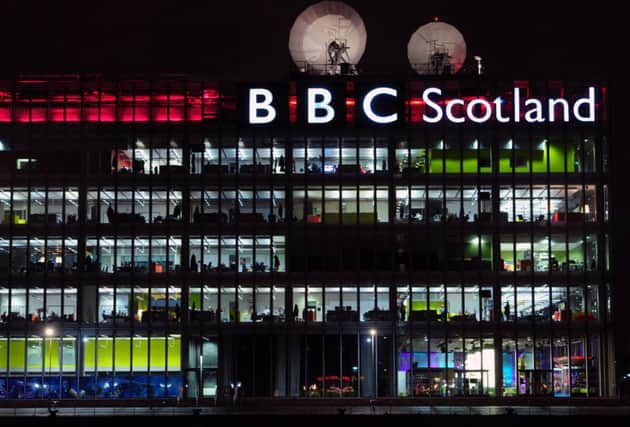Glasgow 2014: Strike threat to BBC TV coverage


Technicians, journalists and other corporation employees are set to walk out over a pay row at midday on Wednesday – the day Glasgow 2014 gets under way.
Members of the National Union of Journalists, Bectu and Unite will carry out a 12-hour strike.
Advertisement
Hide AdAdvertisement
Hide AdBBC1 live coverage of the ceremony, presented by Gary Lineker, Hazel Irvine and Clare Balding, is due to begin at 8pm next Wednesday and run until 11pm – with the strike going on throughout.
Coverage is set to feature the Queen reading the message contained in the Commonwealth baton, which has been carried across the globe.
The strike will be followed by a “work to rule”, which may have a further impact on coverage in the following days.
Unions have not stated for how long this will go on.
Last night, the BBC – which has exclusive UK rights to broadcast Glasgow 2014 – said: “We will do all we can to bring our audience uninterrupted coverage of the Commonwealth Games. In the meantime, we will continue to speak to the unions in an attempt to resolve this dispute.
“However, we have already made an improved offer and we are mindful that across the BBC we need to make significant savings and deliver more for less.”
The broadcaster is expected to provide blanket coverage of the Games across television, radio and online.
The impact of a strike may be lessened by having independent firm Sunset Vine Global Television on site, which has more than 1,000 staff covering the 11-day event and supplying feeds to several broadcasters, including the BBC.
Scottish Conservative sports spokeswoman Liz Smith MSP said: “The news of this strike is extremely disappointing, especially because it is clearly deliberately timed to coincide with the launch of the Commonwealth Games.
“There is absolutely no need for this strike to go ahead.
Advertisement
Hide AdAdvertisement
Hide Ad“When athletes have given up so much to train and prepare for the opportunity of a lifetime, the various unions are preparing to strike, which has the potential to cause completely unnecessary unrest just when the Games are beginning.”
Last night, a spokesman for Glasgow 2014 said: “We understand that the BBC are doing all they can to bring full coverage of the Glasgow 2014 Opening Ceremony to audiences.”
Gerry Morrissey, general secretary of Bectu, which represents technical staff, said: “The BBC can find money for vanity projects, but cannot find money for its own staff, whose pay has dropped by 10 per cent in the last five years.”
He added: “BBC rank-and-file staff are appalled at once again finding themselves at the back of the queue when managers sit down to review pay. Instead of playing to the political gallery, BBC senior management should have the courage to reward staff fairly for the increasing demands they face.”
NUJ general secretary Michelle Stanistreet added: “The decisive turnout and result clearly demonstrates that journalists across the BBC are not prepared to put up with paltry pay deals any longer, while those running the corporation continue to enjoy their lavish salary and perks at the same time as dishing out lectures about the need for staff to ‘get austerity’.”
She went on: “When it comes to executive perks, lavish salaries for managers and jobs for their mates, the BBC executive is the board that likes to say yes.
“When it comes to paying journalists and programme makers that deliver the content that makes the BBC the envy of the world, the BBC has tried to peddle the line that a below-inflation deal is the only way of keeping their political and corporate enemies at bay in the forthcoming licence fee settlement.”
Branding the corporation’s management as “badly out of touch” with its staff, she said that the NUJ believed “radical reform” was needed at the BBC, with executive pay capped at £150,000.
Advertisement
Hide AdAdvertisement
Hide AdThe move to industrial action follows what was described as overwhelming vote in favour of industrial action in protest at an offer of a £650 increase for those earning less than £50,000 a year and £500 for employees on more than £50,000.
Union leaders said staff had suffered five years of below
inflation pay deals, adding that the BBC could afford to pay more.
Members of the NUJ voted by 77 per cent in favour of a strike, while those in Bectu backed action by 79 per cent.
The NUJ said its members were prepared to take “sustained action”, warning that further dates for industrial action will be called if the dispute is not resolved.
The planned strike is the latest in a series of setbacks for the Games.
In April, the organisers announced that they would be blowing up the Red Road tower blocks as part of the opening ceremony, causing a public outcry that eventually forced them to do a U-turn.
The following month, the sale of tickets was suspended when the weight of demand caused Games ticketing website to crash.